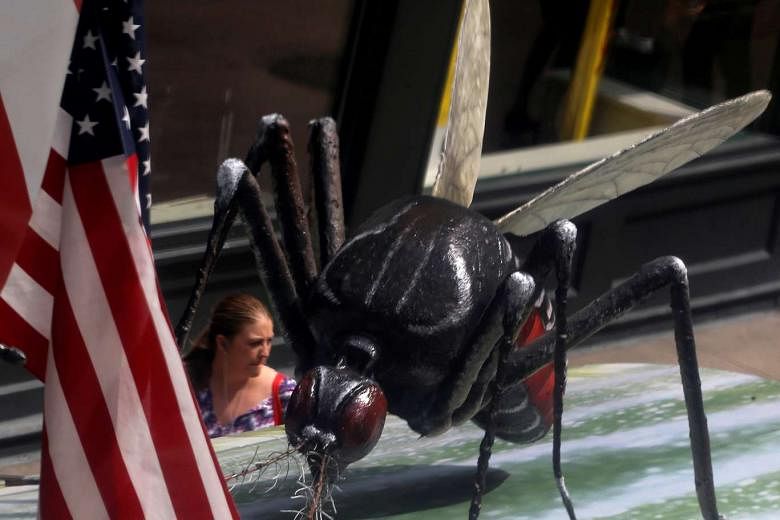CHICAGO (REUTERS) - A caregiver for an elderly Utah man who died while infected with Zika tested positive for the virus but has recovered, health officials said on Monday (July 28).
The US Centres for Disease Control and Prevention said it has confirmed that a person who helped care for the man who died last month while infected with Zika contracted the virus. But, it said the patient recovered quickly.
Utah officials said the infected caregiver had not had any recent travel to an area where the Zika virus is being transmitted nor had the person had sex with an infected individual. Utah officials are still investigating how the person became infected.
Gary Edwards, director of the Salt Lake County Health Department, said the infected individual is a family contact of the man who died.
Edwards would not say how old the family contact was nor release the person's gender.
"We know that the patient had contact with the deceased patient while the deceased patient was very ill. The exact nature of that contact, we are still investigating," he said.
Edwards said the cause of the deceased person's death is still under investigation, but the man was infected with Zika at the time of death and officials believe the virus was a contributing factor. He contracted Zika on a trip to a country with active transmission.
The CDC said in a statement that testing showed extremely high levels of virus in the deceased man's blood, which were more than 100,000 times higher than seen in other samples of infected people.
"The new case in Utah is a surprise, showing that we still have more to learn about Zika," Dr Erin Staples, CDC's medical epidemiologist who is in Utah leading an investigation.
"Fortunately, the patient recovered quickly, and from what we have seen with more than 1,300 travel-associated cases of Zika in the continental United States and Hawaii, non-sexual spread from one person to another does not appear to be common."
Tom Hudachko, director of communications for the Utah Department of Health, said the case is unique because the infected individual does not have any of the known risk factors associated with Zika.
Hudachko said state officials are not aware of any mosquitoes known to carry the Zika virus within Utah. He said there were a few Aedes aegypti mosquitoes - the kind that carry Zika - discovered in traps in the southwestern parts of the state several years ago, but there have not been any since.
He said the state does not have any Aedes albopictus mosquitoes, the other type that has been found capable of transmitting Zika.
"We're looking at all potential contacts between the deceased patient and the new case," he said. "We're also doing mosquito trapping near the residence where these individuals lived to make sure this is not a potential route of transmission," Hudachko said.
SKIN LACERATIONS MAY PLAY A ROLE
According to the CDC, as of July 13, 2016, 1,306 cases of Zika have been reported in the continental United States and Hawaii; none of these have been the result of local spread by mosquitoes.
These cases include 14 believed to be the result of sexual transmission and one that was the result of laboratory exposure.
"We know bodily fluids like saliva and urine can harbor the virus, said Dr Amesh Adalja, a spokesman for the Infectious Diseases Society of America.
He said it will be important to know whether the family contact of the deceased man had any skin lacerations or skin disease that might have allowed the virus access to the patient's blood.

